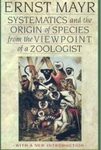![Altered Inheritance Altered Inheritance]()
Click to have a closer look
About this book
Contents
Customer reviews
Biography
Related titles
About this book
A leading bioethicist offers critical insights into the scientific, ethical, and political implications of human genome editing.
Designer babies, once found only in science fiction, have become a reality. We are entering a new era of human evolution with the advent of a technology called CRISPR, which allows scientists to modify our genes. Although CRISPR shows great promise for therapeutic use, it raises thorny ethical, legal, political, and societal concerns because it can be used to make permanent changes to future generations. What if changes intended for the good turn out to have unforeseen negative effects? What if the divide between the haves and have-nots widens as a result? Who decides whether we genetically modify human beings and, if so, how?
Françoise Baylis insists that we must all have a role in determining our future as a species. The scientists who develop and use genome-editing tools should not be the only ones making decisions about future uses of the technology. Such decisions must be the fruit of a broad societal consensus. Baylis argues that it is in our collective interest to assess and steer the development and implementation of biomedical technologies. Members of the public with different interests and diverse perspectives must be among the decision makers; only in this way can we ensure that societal concerns are taken into account and that responsible decisions are made. We must be engaged and informed, think critically, and raise our voices as we create our future together.
Sharp, rousing, timely, and thought-provoking, Altered Inheritance is essential reading. The future of humanity is in our hands.
Contents
Prologue
1. Targeting a Single Gene: Huntington’s Disease
2. From Editing a Genome to Altering Inheritance
3. Babies by Design
4. From “Well” to “Better than Well”
5. Ethics in the Interim
6. Of Harms and Wrongs
7. Slow Science
8. Scientists, Science Policy, and Politics
9. Ethicists, Science Policy, and Politics
10. “All of Us” for “Us All”
Epilogue: A New Dawn
Acronyms
Glossary
Notes
Acknowledgments
Index
Customer Reviews
Biography
Françoise Baylis is University Research Professor at Dalhousie University. She is a member of the Order of Canada and the Order of Nova Scotia, as well as a fellow of the Royal Society of Canada and of the Canadian Academy of Health Sciences. Baylis was a key participant in the 2015 International Summit on Human Gene Editing and is a member of the WHO Expert Advisory Committee on Developing Global Standards for Governance and Oversight of Human Genome Editing.
By: Françoise Baylis(Author)
287 pages, 10 illustrations
"Altered Inheritance is a call to action. Fair, balanced, and enjoyably readable, this book provides us with insights into the greatest technical and social challenges of our day and their ethical impact on future generations."
– George Church, coauthor of Regenesis
"Altered Inheritance argues that the use of gene-editing technology should require significant input from the broad public. This book is extremely timely, addresses a high interest and important topic, and comes from an influential voice in the gene-editing debate."
– Josephine Johnston, The Hastings Center
"Informative and thoughtful, Altered Inheritance casts the ethically perplexing questions raised by genome editing in a clear new light. Françoise Baylis asks us to slow down and rediscover our collective moral agency instead of feeling overtaken by the momentum of science and technology."
– Peter Mills, Nuffield Council on Bioethics
"Incisive and insightful, Altered Inheritance wrenches open the laboratory doors behind which science and technology struggle to set a new course for society, for humanity, and for those who are most vulnerable for extinction."
– Donna R. Walton, Founder and President, The Divas With Disabilities Project
"Françoise Baylis is a fearless philosopher whose courage is matched by her talent. In this wise, lucid book, she asks exactly the right questions. What kind of world do we want to live in and how likely is gene editing to take us there?"
– Carl Elliott, author of White Coat, Black Hat: Adventures on the Dark Side of Medicine



































